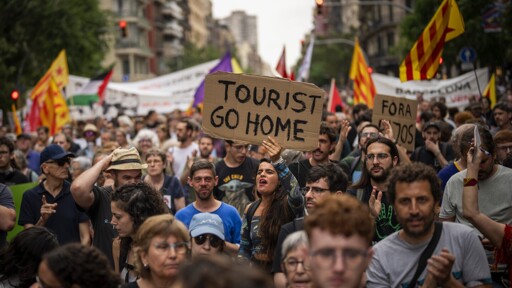MADRID (AP) — Spain has ordered Airbnb to block more than 65,000 holiday listings on its platform for having violated rules, the Consumer Rights Ministry said Monday.
The ministry said that many of the 65,935 Airbnb listings it had ordered to be withdrawn did not include their license number or specify whether the owner was an individual or a company. Others listed numbers that didn’t match what authorities had.
Spain is grappling with a housing affordability crisis that has spurred government action against short-term rental companies.



Your downvotes make me wonder if I misunderstood your post, but you seem to be saying that Spain’s Airbnb regulations make it harder for people to buy flats with the intention of using them as short-term holiday lets, while not really stopping people who just want to rent a room in their own house for short periods. Which does sound good to me, given that those empty rooms in grandma’s house wouldn’t otherwise be on the market.
So is your point that this is “anti-tourist” in the sense that it does make things more difficult for tourists, but that should be expected given that tourists are generally indifferent to the long term negative effects of tourism on a city?
I’m not really acquainted with the details of how Spain does it but it’s common practice in Europe to need a license for short-term rentals, it’s usually municipal statute as an extension of zoning law. Details differ vastly depending on location because every municipality is different.
Before the days of AirBnB circumventing those municipal regulations was very hard as big hotels are kind of hard to hide, they’re rather obvious, and if you have small apartments where are you going to get your renters from. AirBnB made it possible to get renters for small properties that fall under the radar of authorities. So requiring AirBnB to, effectively, ensure that what they list is licensed is closing that loophole.
The “anti-tourist” thing only really comes into play when municipalities are actually limiting the number of licenses they give out: When licenses are abundant it doesn’t matter that you can skirt them with AirBnB. Cities like Barcelona do limit them, other places don’t, as such only places like Barcelona had an actual problem with AirBnB, as such cracking down on AirBnB is helping the anti-tourist “agenda” of places like Barcelona. With agenda I mean allow people to continue to live and work in their own city doing something else but wipe tourist asses.